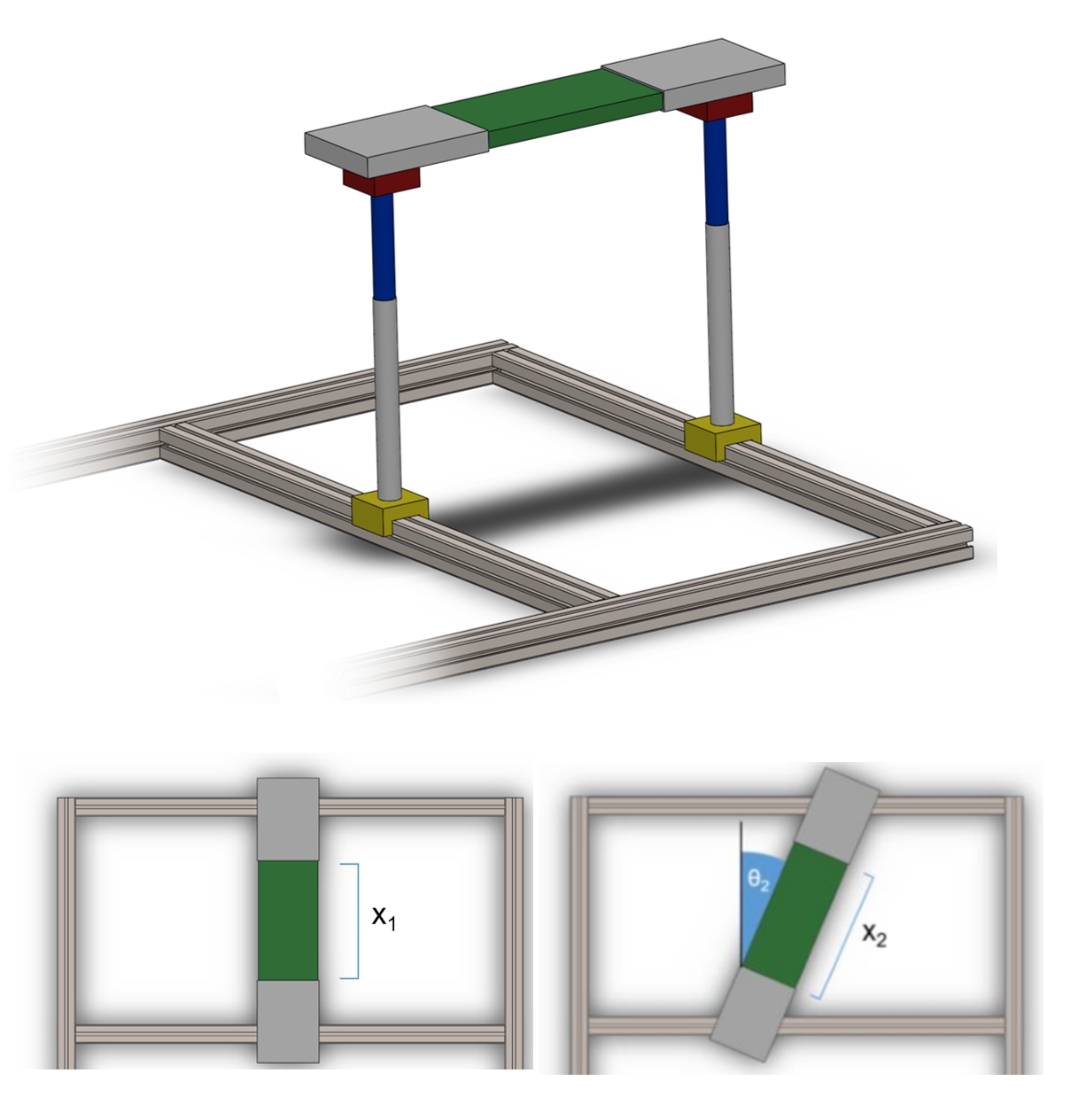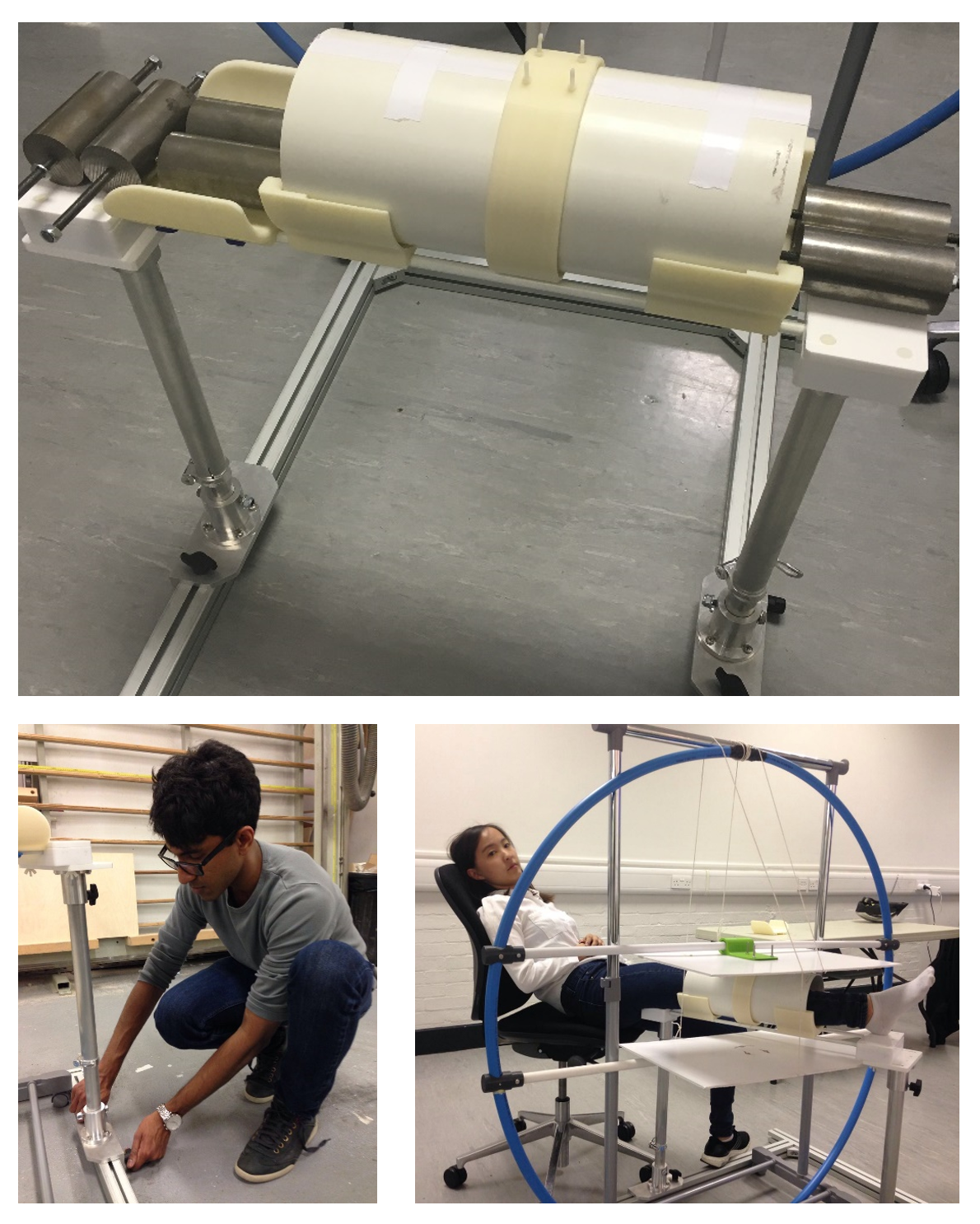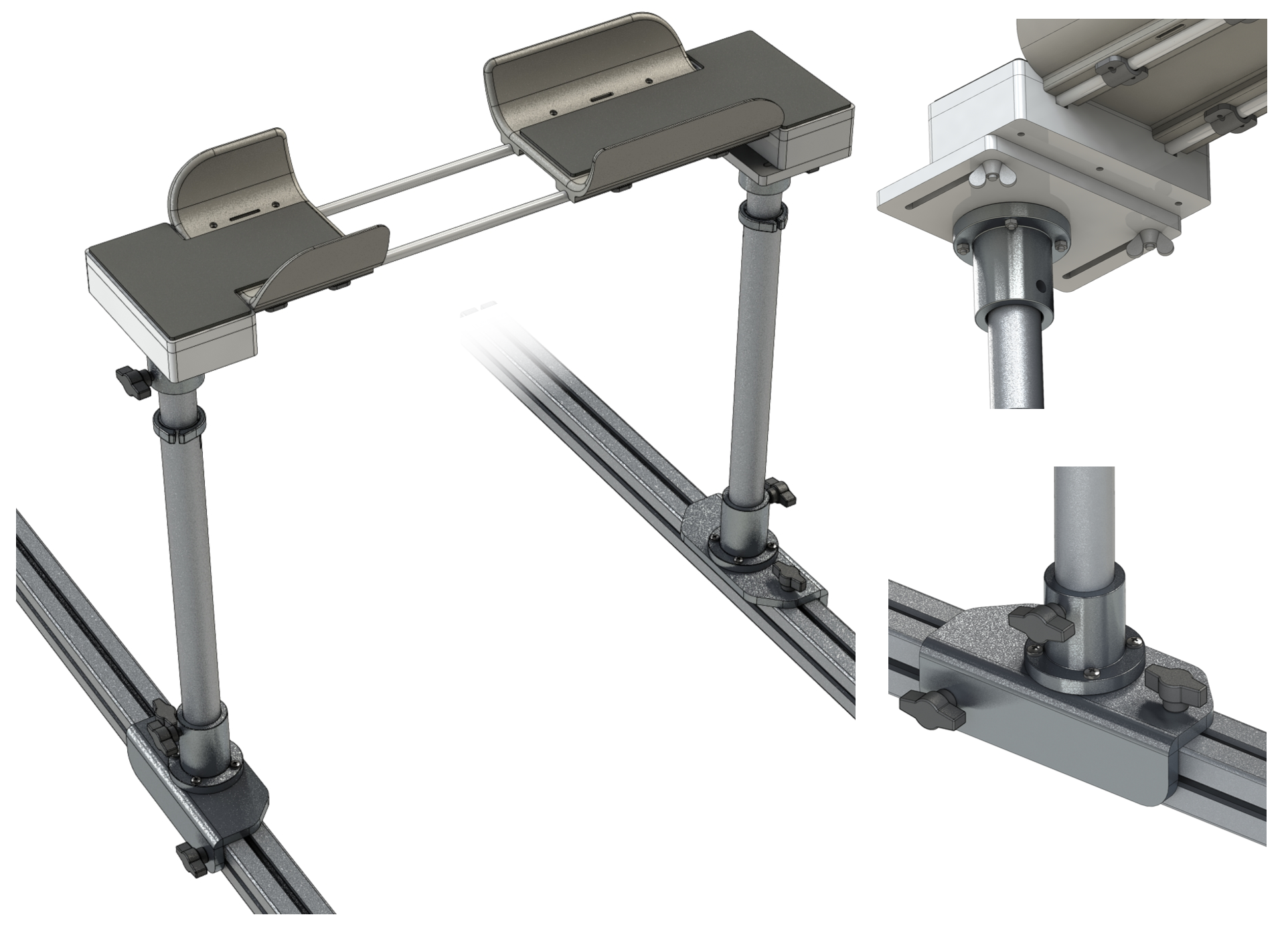Leg Support
Student group project, 2016
This project was based around a newly
developed MRI scanner for knee imaging. It’s performance was to be validated via
clinical testing, and required a specialised leg support to do so. In
particular, to allow for the scanners rotation and tilt, it could only
accommodate one leg at a time. And so, the aim of this project was to design, make, and test a single leg support that could be used with the scanner for imaging.
A bridge-like design with two support
pillars was selected to provide the stability required for high quality
imaging. The support was kept detached from the chair to simplify design and
manufacture.
Since we didn’t have regular access to the
MRI scanner, a collapsible mock-up was built for the testing phase. It was
designed to simulate the geometric constraints of the machine in use.
This was also used for preliminary
research, to determine comfortable seating positions to design around.
![]()
The required degrees of freedom (DOF)
were then determined in order to design mechanisms to allow for each,
including:
• Height
adjustment (Blue)
• Support
rotation, facilitated by:
• Base
translation (yellow)
• Support
column rotation (red)
• Leg
support extension (green)
![]()
![]()
The final prototype allowed for rapid
rotation, translation, and height adjustment to ensure patient comfort.
Additionally, the leg is supported by an interchangeable 3D printed profile,
which can be swapped to suit varying patient physiology. The support can be
quickly and compactly integrated with the MRI scanner’s base via
aluminium extrusions.
The final prototype underwent extensive load
testing to
ensure it
could support the design loads, and user testing to verify comfort
and usability.
![]()
![]()




